
ANXIETY
Series Editor: Arlene Hirschfelder
Books in the It Happened to Me series are designed for inquisitive teens digging for answers about social issues, certain illnesses, or lifestyle interests. These books feature up-to-date information, relatable teen views, and thoughtful suggestions to help you figure out stuff. Besides special boxes that highlight singular facts, each book is enhanced with the latest reading lists, websites, and other recommendations.
The following titles may also be of interest:
Activism: The Ultimate Teen Guide , by Kathlyn Gay
ADHD: The Ultimate Teen Guide , by John Aspromonte
Adopted: The Ultimate Teen Guide Revised Edition, by Suzanne Buckingham Slade
Autism Spectrum Disorder: The Ultimate Teen Guide , by Francis Tabone
Bigotry and Intolerance: The Ultimate Teen Guide , by Kathlyn Gay
Bullying: The Ultimate Teen Guide , by Mathangi Subramanian
College: The Ultimate Teen Guide , by Lisa Maxwell Arter
Creativity: The Ultimate Teen Guide , by Aryna Ryan
Depression: The Ultimate Teen Guide , by Tina P. Schwartz
Divorce: The Ultimate Teen Guide , by Kathlyn Gay
Eating Disorders: The Ultimate Teen Guide , by Jessica R. Greene
LGBTQ Families: The Ultimate Teen Guide , by Eva Apelqvist
Parental Death: The Ultimate Teen Guide , by Michelle Shreeve
Self-Injury: The Ultimate Teen Guide , by Judy Dodge Cummings
Sexual Assault: The Ultimate Teen Guide , by Olivia Ghafoerkhan
Sexual Decisions: The Ultimate Teen Guide Second Edition, by L. Kris Gowen
Shyness: The Ultimate Teen Guide , by Bernardo J. Carducci, PhD, and Lisa Kaiser
Siblings: The Ultimate Teen Guide , by Olivia Ghafoerkhan
Substance Abuse: The Ultimate Teen Guide , by Sheri Bestor
Published by Rowman & Littlefield
An imprint of The Rowman & Littlefield Publishing Group, Inc.
4501 Forbes Boulevard, Suite 200, Lanham, Maryland 20706
www.rowman.com
6 Tinworth Street, London, SE11 5AL, United Kingdom
Copyright 2020 by The Rowman & Littlefield Publishing Group, Inc.
Most names have been changed to protect the privacy of those who anonymously contributed.
All rights reserved . No part of this book may be reproduced in any form or by any electronic or mechanical means, including information storage and retrieval systems, without written permission from the publisher, except by a reviewer who may quote passages in a review.
British Library Cataloguing in Publication Information Available
Library of Congress Cataloging-in-Publication Data
Names: Cik, Kate Frommer, 1984 author.
Title: Anxiety : the ultimate teen guide / Kate Frommer Cik.
Description: Lanham : Rowman & Littlefield, [2020] | Series: It happened to me | Includes index. | Audience: Ages 13-18 | Summary: Anxiety in teenagers is on the rise, and this book aims to help young adults cope with their struggles. Different types of anxiety, anxiety triggers, and coping strategies are accessibly explained, and personal stories from teens who have suffered from anxiety are included throughout to provide perspective and support for the young reader Provided by publisher.
Identifiers: LCCN 2019051362 (print) | LCCN 2019051363 (ebook) | ISBN 9781538121962 (cloth) | ISBN 9781538121979 (epub)
Subjects: LCSH: Anxiety in adolescenceJuvenile literature. | Anxiety disordersJuvenile literature.
Classification: LCC BF724.3.A57 C54 2020 (print) | LCC BF724.3.A57 (ebook) | DDC 155.5/1246dc23
LC record available at https://lccn.loc.gov/2019051362
LC ebook record available at https://lccn.loc.gov/2019051363
 The paper used in this publication meets the minimum requirements of American National Standard for Information SciencesPermanence of Paper for Printed Library Materials, ANSI/NISO Z39.48-1992.
The paper used in this publication meets the minimum requirements of American National Standard for Information SciencesPermanence of Paper for Printed Library Materials, ANSI/NISO Z39.48-1992.
For Peretz
Contents
Guide
E veryone experiences anxiety. That awful sense of impending doom, of dread, of heart-pounding panic is all too familiar, whether weve felt it in school, social situations, sports games, or moments of real danger. Those feelings are something that millions of people are struggling to manage on a daily basis.
In every walk of life, we hear about anxiety. A recent study by the NCAA found that half of students reported experiencing high levels of anxiety.
According to experts, anxiety specifically in teenagers is on the rise. In October 2017, the New York Times Magazine asked Why Are More American Teenagers Than Ever Suffering from Severe Anxiety? It was the most recent in a slew of articles (including When Anxiety Hits at School in the Atlantic and Teen Depression and Anxiety: Why the Kids Are Not Alright in Time ) that discuss a steady increase in adolescent anxiety. In fact, data from recent studies claim that 31.9 percent of adolescents (ages thirteen to eighteen) have an anxiety disorder. That is, at any given moment, almost a third of teenagers are experiencing symptoms consistent with these diagnoses.
If anxiety is so common, why do we feel so alone when we experience it? Why does it seem like everyone else is care free while we struggle? Jason Saltzman noted of his experience, I just thought it was all in my mind. I also felt insecure talking about it to anyone. It felt taboo.
Many teenagers I speak with echo these same thoughts. They feel alone with and ashamed of their anxietylike a tragic anomaly in a sea of happy, untroubled peers: Whats wrong with me? Nobody understands what its like. Why cant I cope, when everyone else does?
Perhaps anxiety does not feel universal or normal because people experience it differently and in different situations. For some, staring at a complex math problem can bring on heart palpitations and constrained breathing; others would find that an enjoyable challenge. Some teenagers find social gatherings a good place to de-stress; for others, stepping into a party is paramount to jumping off a cliff with no net in sight. As one teenager, Iris, told me, Yes, everyone experiences anxiety at some point in their life, so people will say, Oh its really not that hard. But everything thats simple for you is very challenging for me.
As a psychologist, I work with teenagers day in and day out, and what is most evident from speaking with them is that the pressure to keep it all together while suffering in silence is taking its toll. I cannot think of a better antidote than ending the silence and opening up those lines of communication: teens should hear from teens.
In an interview about the Student-Athlete Mental Health and Wellness Program at Wellesley College, Niki Rybko, the director of sports medicine and well-being, said, The biggest thing is starting the conversation.... I think that colleges need to start putting on programming where starting the conversation is OK. Saying I have a mental health illness. I have anxiety. Some days I dont feel great. Thats OK. Rybko explained that her goal is for student-athletes to think about a mental health issue as they would any other injury. An ankle sprain, you have to do your rehab, or else youre going to sprain it again. Its the same thing. If youre feeling low or are having lots of anxiety, you go get the help.
This book is not a self-help book per se. Rather it is meant to share facts and information and personal storiessome of which you may relate to and some of which you may not. You will hear from young men and women who were happy to share their experiences because they hope to inspire and help you, just as others inspired them. There are lots of different parts to this book; you can skip to the ones that sound relevant to you. This book is simply meant to start the conversation.
Next page

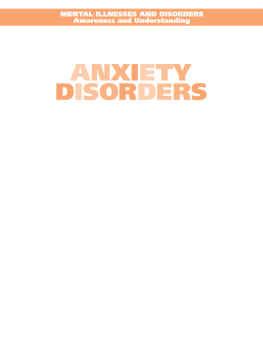
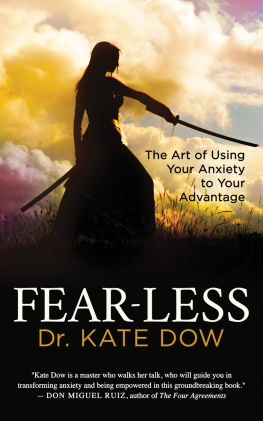

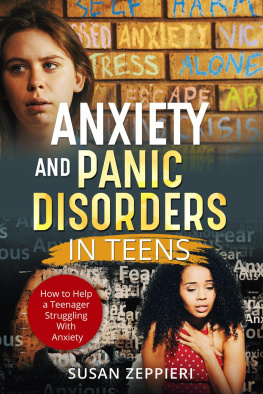
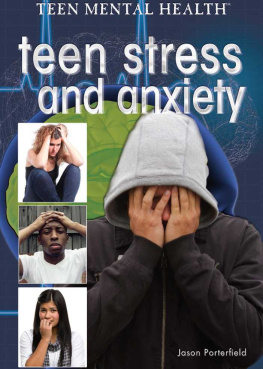
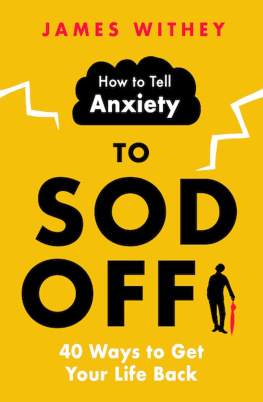
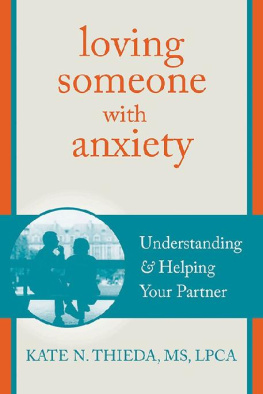
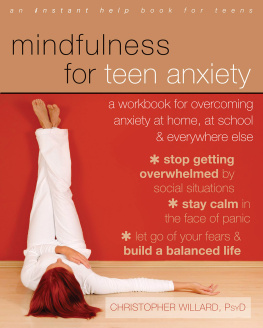
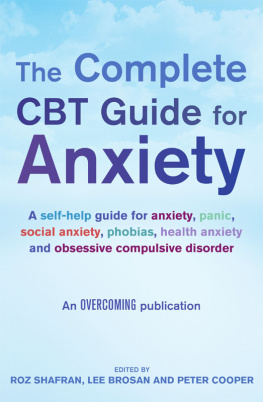
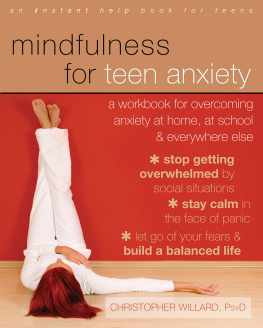

 The paper used in this publication meets the minimum requirements of American National Standard for Information SciencesPermanence of Paper for Printed Library Materials, ANSI/NISO Z39.48-1992.
The paper used in this publication meets the minimum requirements of American National Standard for Information SciencesPermanence of Paper for Printed Library Materials, ANSI/NISO Z39.48-1992.